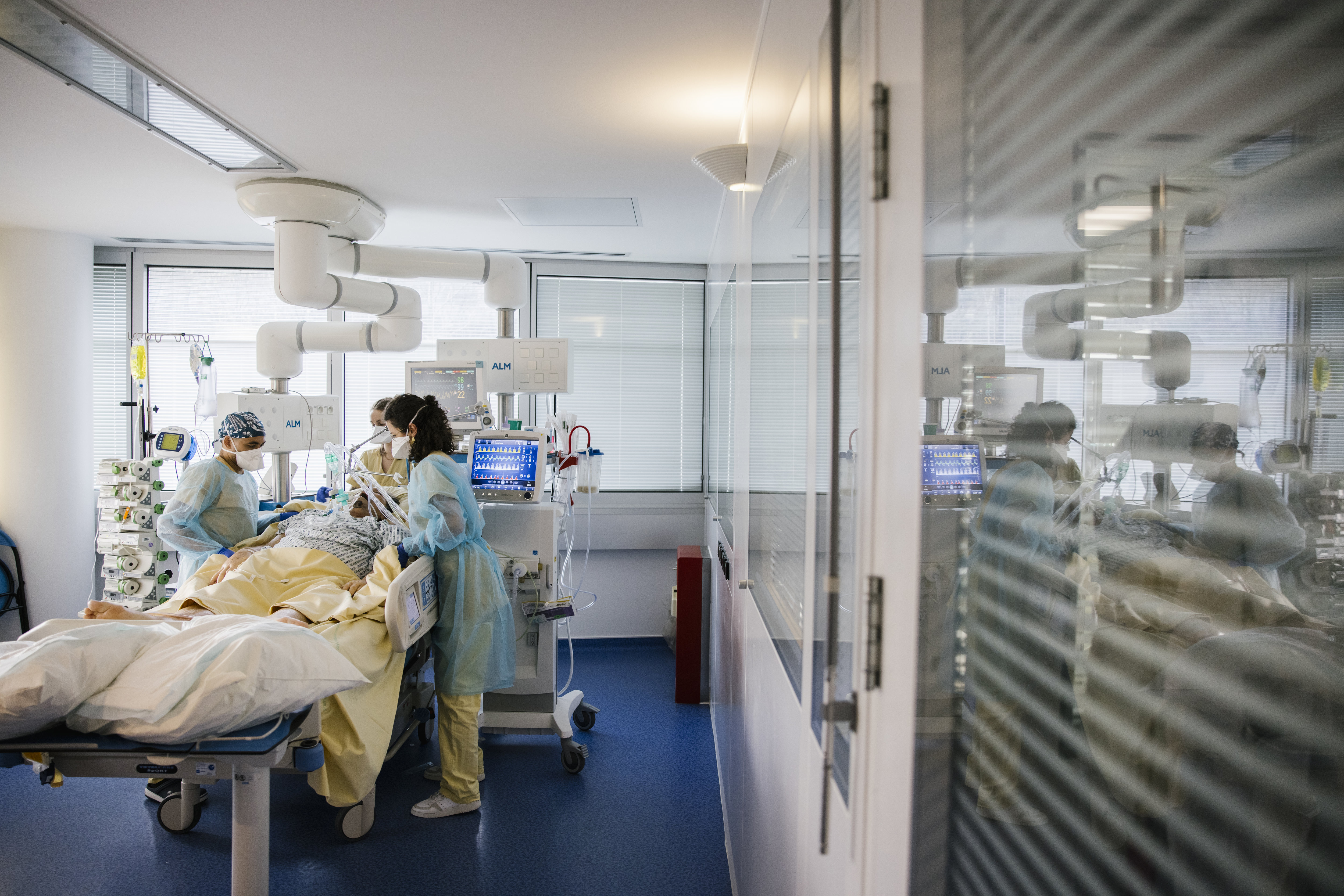Freedom regained, but at what cost?
The lifting, even gradual, of the containment measures from May 3 to a lesser extent and, especially from May 19, sparked debate among experts and caregivers as to the risk of a rebound in the Covid-19 epidemic.
"It is very complicated to make predictions, but given the current level of traffic, it is risky," explains Rodolphe Thiébaut, deputy director of the Inserm Bordeaux Population Health research center.
Will in-depth vigilance mitigate the potentially deleterious effect of the reopening of schools?
Are people going to move around a lot on a bridge and speed up traffic?
In any case, the incidence is high and will remain so, which makes the epidemic difficult to control.
It is difficult for the government, which must take into account criteria other than health.
"
Read alsoStages of deconfinement, vaccines, health pass ... the interview with Emmanuel Macron
It is this principle of reality that is essential, according to Jean-Michel Constantin, head of the intensive care unit at Pitié-Salpêtrière. "We are in the hard and I do not imagine having to bail again in July," he introduces however. But we had no choice. What the president is proposing seems to me to be fairly consistent. There is not much room for maneuver and I call for individual responsibility. We start from above and if we listen to the resuscitators, we have to put France under cover for three weeks. But if we do that, we're gonna blow everyone up. "
After three and a half weeks of light confinement, the average number of contaminations detected each day fell by a third, to around 26,000, but the number of people in critical care increased by nearly 10% over the period, despite a beginning of recession over the last three days (5,804).
The daily death toll remains hopelessly at 290, on average.
These two indicators are always affected by the measurements with a delay, due to the delay between contamination and the worsening of the disease.
A fourth wave possible at the end of July
In this context, the Pasteur Institute has put figures on the risks of deconfinement as rapid as last year, through models correlated with the greater contagiousness of variants and the deployment of vaccination.
The study also presents alternative scenarios, with a slowdown in traffic, induced by more restrictions or vigilance.
In the disaster scenario, a fourth wave appears at the end of July, with more than 3,000 daily hospitalizations, against 1,700 currently.
“We need a progressive lifting of braking measures, otherwise we risk finding ourselves in a difficult situation,” explains Simon Cauchemez, the epidemiologist at the head of this study.
“Lately, the forecasts of the modellers have often been too alarmist, tempers Bruno Megarbane, head of department at the Lariboisière hospital.
Currently, the epidemic is receding three times slower than during the first confinement, and the more the measures will be lightened, the more it will fall slowly.
Nevertheless, the scenario of 15,000 cases as of May 19 seems realistic to me.
5,000 would be better, of course, but then I expect a slower decline rather than a rebound.
It was complicated to maintain measures that people were not going to apply for longer.
The position is rather realistic.
Now, that will depend a lot on the barrier gestures and the vaccination.
"
Local measures in the event of a resumption of the epidemic
Emmanuel Macron chooses a general model, with alarm signals and local measures, if the machine races again above 400 cases per 100,000 inhabitants with saturated hospitals. Insufficient criteria according to the Terra Nova think tank which calls in a detailed report "a containment strategy".
"We know that zero Covid is an inaccessible dream, but a middle way exists, which consists of going below the 5,000 cases per day bar which makes it possible to test, trace and isolate effectively, explains Mélanie Heard, coordinator of the cluster. health of Terra Nova. It is wrong to bet everything on vaccination, because of the delays and especially the risk of variants. We cannot stay on a plateau with 30,000 cases detected every day. If we presented a clear framework, with objectives and the means to achieve it, with great robustness in pedagogy and transparency, I think that would increase support. "

